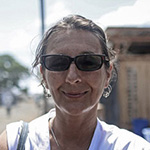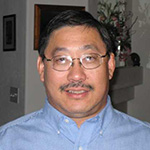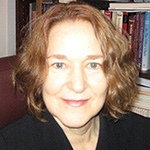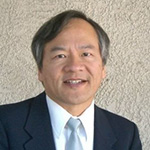Ebola: Practice Reflections
Athena Viscusi, LCSW
Doctors Without Borders

I'm a mental health professional with Doctors without Borders, an NGO that delivers emergency medical aid to people affected by conflict, epidemics and disasters. I recently worked in Liberia, which has been affected by the Ebola crisis. Many people in Liberia know how to recognize Ebola symptoms and where to get help. However, there is a lot of suspicion of the treatment centers. People are afraid of going to the treatment centers because the death rate there is high.
In addition, by public decree, all people who die of Ebola in Liberia are to be cremated, since dead bodies are carriers of the virus. People do not want them or their relatives to be cremated. They would wait until the last minute to come, hoping the symptoms they had were not Ebola. Because the virus is frequently deadly, there is justifiably a lot of fear. There’s misunderstanding about the means of contagion, just as there is currently in the US.
Another important factor is stigma. People who have Ebola, or have contact with or are rumored to have, contact with someone who has Ebola are stigmatized. So people do not want to admit they have the disease. They might not report contacts with people who were sick or died of the disease. Stigma also affects our health care workers. Some are kicked out by their families or neighbors, who fear erroneously that they could bring the virus home with them.
This stigma has also affected American health care workers who have returned home from West Africa. There have been efforts to isolate us forcefully, although we are not contagious. All Doctors without Borders returning workers agree to follow our organization’s protocols when we return home. These protocols include monitoring our temperature twice a day, checking for any symptoms such as vomiting and diarrhea, and reporting symptoms immediately to MSF. MSF is in contact with properly equipped hospitals and, in cooperation with the local health authorities, will arrange for our immediate transport to a designated facility.
In Liberia, I trained and supervised a staff of social workers and counselors who helped patients, their families, and the staff. For the patients, we provided encouragement, activities (such as dancing and art), materials to make them more comfortable, liaison with their relatives, and bereavement counseling when needed. There is no treatment for Ebola itself. In the absence of a medical cure, the patient’s mental status is an important element – maybe the most important - in recovery. If we could prevent depression and apathy, we could insure that patients would drink, eat, and take medicine and improve their chances.
We also prepared patients for discharge. We had many unaccompanied children for whom we had to trace relatives. Several children were orphaned. We were able to place all but two of them with relatives. For the families, we provided information about their hospitalized relatives, information about the illness, disinfection kits to clean their houses if someone had been sick there, and bereavement counseling in case of death. They could not claim the bodies to perform customary ceremonies and funerals, so we provided them with a photograph of the patient as a memento.
For the staff, we provided supportive counseling and stigma reduction workshops. Staff were affected by the level of stress of the job, the risk of exposure, and the high death rate of patients. Sometimes patients were relatives or friends of the staff. In the workshops, we explained Ebola treatment to staff’s family and community members. We also had testimony from an Ebola survivor, so they could understand how the staff’s work is important and life-saving. Survivors are often stigmatized in their communities, because people do not understand that they do not carry the virus. Most could not return to their former jobs, some could not return to their homes.
The services we provided for Ebola in Liberia are a powerful illustration of social work at its most elemental – we help individuals and communities mobilize their own internal strengths in order to thrive, in the absence of material resources and a medical cure. In this age of “evidence based models” and copyrighted interventions, which claim to obtain results because of the expertise of the social worker, it’s important to remember the basics of our profession. What makes us different is that we seek to empower others, within a systems based perspective.
Working abroad, we more easily see how factors such as poverty and politics influence individuals’ well- being. Ebola spread so rapidly in West Africa because of the lack of adequate facilities and equipment for health care providers. The lack of research into medications and vaccines for Ebola is because it has only affected poor African people so far. Now that it has affected some Americans and Europeans, there is more interest.
Social workers are uniquely positioned to help. Social workers have had a historic role in combatting stigma and prejudice in this country against African Americans, immigrants, LGBT people, and persons with HIV. Social workers know how to listen to people when they are fearful and help them examine the roots of their fear and question their perspective. We also know how to listen to those who are being oppressed, encourage them, and speak out on their behalf.
An enforced quarantine is an unnecessary violation of our civil rights, curtailing our freedom of movement, to practice our religion, and to earn a living. A quarantine does not keep the US safer, it makes health care workers targets for having assisted poor African patients, just as HIV workers were discriminated in the 1980s and 90s for helping gay men and drug users. Being a strength-based profession, social workers should advocate for returning Ebola workers to monitor themselves and keep in proximity of appropriate care, as we do. We should not be stigmatized or coerced.
Anthony Yamamoto, LCSW
Director of Social Work Services and Child Development
Children's Hospital Central California

At my hospital, I serve on the emergency response team, which is formalizing our hospital-wide Ebola plan. Social work staff has been involved in our hospital’s disaster preparedness/pandemic planning in the past. The role of the social work staff at Children's Hospital Central California is to address any fears related to Ebola and the emotional needs of our patients, their families, visitors and staff. As with all disasters, the social work department will set up debriefing sites for families and staff. We also plan to set up a family resource center, where families affected by the disease can get information and support. It’s my responsibility to keep my staff up to date with information from the hospital, CDC, and the state department of health, as it becomes available. I have surveyed my staff, and most social workers have agreed to continue working if Ebola cases emerge at the hospital, because of their ethical and professional obligation to support our patients and families.
Madelyn Miller, PHD, LCSW
Chair, NASW-NYC Disaster Trauma Committee

For all of us, our reactions to Ebola are deeply felt. We are profoundly affected by the magnitude of loss and suffering in West Africa, heartbroken for those lost and for their survivors. We are saddened by the death of Thomas Eric Duncan to Ebola, and concerned about the well-being of his family who grieve amidst stigma, rejection, isolation, and fear.
We are concerned about other West Africans and those perceived to be, here in New York City, facing animosity, blame, and disdain. Children have been hurt at school and home care workers asked to stay home. And as the Ebola reality continues to evolve, we hope for a full recovery of the NYC patient being treated at Bellevue, and for the safety of his family, friends, and colleagues, here and in West Africa.
At the same time, we recognize the deep commitments of the Dallas medical staff, two nurses now well but still recovering, of the front line and broader staff at Bellevue, and of the numerous other health care and humanitarian workers actively engaged locally and internationally, working to provide empathic care and community support, including those workers returning home to the US. We hope for their ongoing health and experience of support.
At this important time, we have unique positions across the five boroughs to offer individual and collective support. We can respond in our particular contexts as clinicians, organizers, administrators, educators, students, and group workers, working with those in hospitals, at schools, community-based organizations, hospices, and clinics, engaging with refugee communities, those seeking asylum, and with those in residential treatment communities, veterans groups, mental health programs, adoption services, prisons, aging-in-place communities, pre-school environments, housing and homeless services, and after-school programs, as only some.
Just as we encourage a sense of agency and empowerment for those with whom we work, experiencing our own sense of agency is essential in this environment. We may take greater initiative in response work, or decide to volunteer with the variety of disaster organizations. We may engage in social action efforts, community initiatives, or decide to be more active in advocacy efforts during this time. We may wish to expand teaching and training commitments, broaden our supervision, attend related workshops, or as is so important now, engage further with peers for support. Each initiative is a dynamic aspect of our resourcefulness and resilience.
Janlee Wong, MSW
Executive Director, NASW California Chapter

When Mr. Thomas Eric Duncan arrived in September 2014, our attention suddenly turned to Ebola despite the epidemic’s outbreak in West Africa in December 2013. Despite assurances from health authorities that we were safe, Duncan’s mistaken release from the hospital and subsequent infections of two nurses has whipped up a frenzy in the media that Americans are at risk. To further compound the hysteria, Ebola has been injected into our political process as we near the November elections.
Rather than take a calm, public health approach to Ebola, we have engaged in finger-pointing, the blame game and overreaction. The lesson we’ve learned from Duncan’s experience is that our health care system was not as prepared as it should be and that Ebola is not just any kind of infectious disease; it needs a level of care and precaution that resembles biological warfare not AIDs or tuberculosis. As a result, we’ve increased training for health treatment personnel (such as donning and removing hazardous materials protective gear), and identified specialty facilities that meet the high standards for treating victims of highly infectious diseases such as the Nebraska Medical Center. The CDC has developed a special strike team that can be deployed in short order.
Except for Duncan, all the infected patients treated in special facilities in the US have survived and have not infected other health care workers. America is now prepared and getting better than in those first days when Duncan arrived. But we haven’t focused enough on containing the disease in West Africa until now.
We’ve sent a military mission to set up a specialized Ebola hospital in Liberia. France and Britain have sent aid to Guinea and Sierra Leone. Cuba and China have sent hundreds of medical workers. Despite the media hysteria and political gamesmanship, we and the world know what needs to be done to stop Ebola: we must stop it in its origin.
Social workers are involved in this effort both overseas and here. Patients, family members and health care personnel need and benefit from social work services including dealing with the stigma, trauma and exhaustion resulting from treating this disease. While few of us can and are willing to volunteer to directly serve, we can be advocates for more aid and money to treat this disease in Africa. Please let your elected representatives know that you support more aid and money for treating and containing Ebola in Africa.